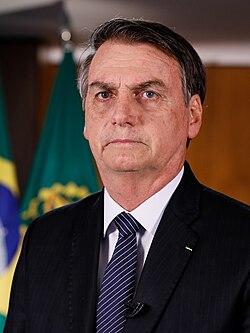The prosecution has formally called for the conviction of former Brazilian President Jair Bolsonaro and seven associates in connection with an attempted coup, marking a significant escalation in the ongoing investigation into efforts to undermine the country’s democratic institutions. The charges, detailed in a recent filing, accuse the group of orchestrating actions intended to disrupt the 2022 presidential election results and destabilize Brazil’s constitutional order. This move underscores the deep political divisions in Brazil and raises pressing questions about accountability and the future of democracy in the nation.
Brazilian Prosecution Presents Strong Evidence Linking Bolsonaro to Alleged Coup Attempt
The Brazilian prosecution has unveiled compelling evidence that implicates former President Jair Bolsonaro alongside seven other defendants in orchestrating a failed coup attempt. Key testimonies, intercepted communications, and digital forensic data reportedly detail a coordinated plan to disrupt the democratic transition following the 2022 presidential election. Among the alleged strategies were attempts to undermine electoral authorities, organize mass demonstrations aimed at overthrowing Congress, and interfere with military commands loyal to the elected government.
Authorities presented a summary of critical findings during the recent hearings, highlighting three main categories of alleged actions:
- Coordination of widespread misinformation campaigns to delegitimize election results
- Mobilization of extremist groups with the intention of violent confrontations
- Direct engagement with senior military officials to secure support
| Evidence Type | Details | Impact |
|---|---|---|
| Digital Records | Encrypted messages between accused parties | Confirmed communication |
| Eyewitness Testimony | Statements from government insiders | Corroboration of plans |
| Financial Traces | Unusual fund transfers linked to group activities | Indication of organized funding |
Analysis of Legal Challenges Facing Bolsonaro and Co-Accused in High-Profile Trial
The legal battle confronting Jair Bolsonaro and his seven co-accused is marked by significant complexities, ranging from evidentiary challenges to political ramifications. Prosecutors face the daunting task of proving conspiracy and intent amid a backdrop of conflicting testimonies and politically charged rhetoric. Key obstacles include:
- Fragmented Evidence: Much of the case depends on digital communications and witness accounts that may be susceptible to dispute or manipulation.
- Jurisdictional Issues: Coordinating among federal and state courts complicates procedural timetables and rulings on admissibility.
- Political Influence: The defendants’ high-profile status invites potential interference or public pressure that could sway judicial impartiality.
Moreover, the defense is leveraging procedural tactics aimed at delaying proceedings and undermining prosecutorial credibility. The trial’s delicate dynamics are reflected in the strategic positioning by both sides, as highlighted below:
| Aspect | Prosecution Approach | Defense Strategy | |||||||||||||
|---|---|---|---|---|---|---|---|---|---|---|---|---|---|---|---|
| Evidence Presentation | Emphasizing digital footprints and recorded meetings | Challenging the authenticity and chain of custody | |||||||||||||
| Witness Testimonies | Seeking corroboration from defectors and insiders | Questioning motives and reliability of key witnesses | |||||||||||||
| Experts Recommend Strengthening Democratic Institutions to Prevent Future Political Instability
Leading political analysts and governance experts emphasize the urgent necessity of reinforcing Brazil’s democratic frameworks as a critical measure to mitigate the risk of future political crises. In light of the recent prosecution’s call for the conviction of former President Bolsonaro and seven others over an attempted coup, specialists argue that strengthening judicial independence, ensuring electoral integrity, and enhancing civic education must be prioritized. These pillars are deemed essential not only in restoring public trust but also in safeguarding democratic norms against authoritarian tendencies. Among the recommended strategies to bolster democratic resilience, experts highlight several key reforms, including:
To Wrap It UpAs Brazil confronts a pivotal moment in its democratic history, the prosecution’s call for the conviction of former President Jair Bolsonaro and seven others marks a significant escalation in the legal response to the attempted coup. The proceedings will not only test the resilience of Brazil’s judicial institutions but also serve as a critical measure of accountability for those accused of undermining the nation’s constitutional order. As the case unfolds, its outcomes will undoubtedly reverberate across Brazil’s political landscape and beyond, highlighting the ongoing challenges facing democracies worldwide. |




